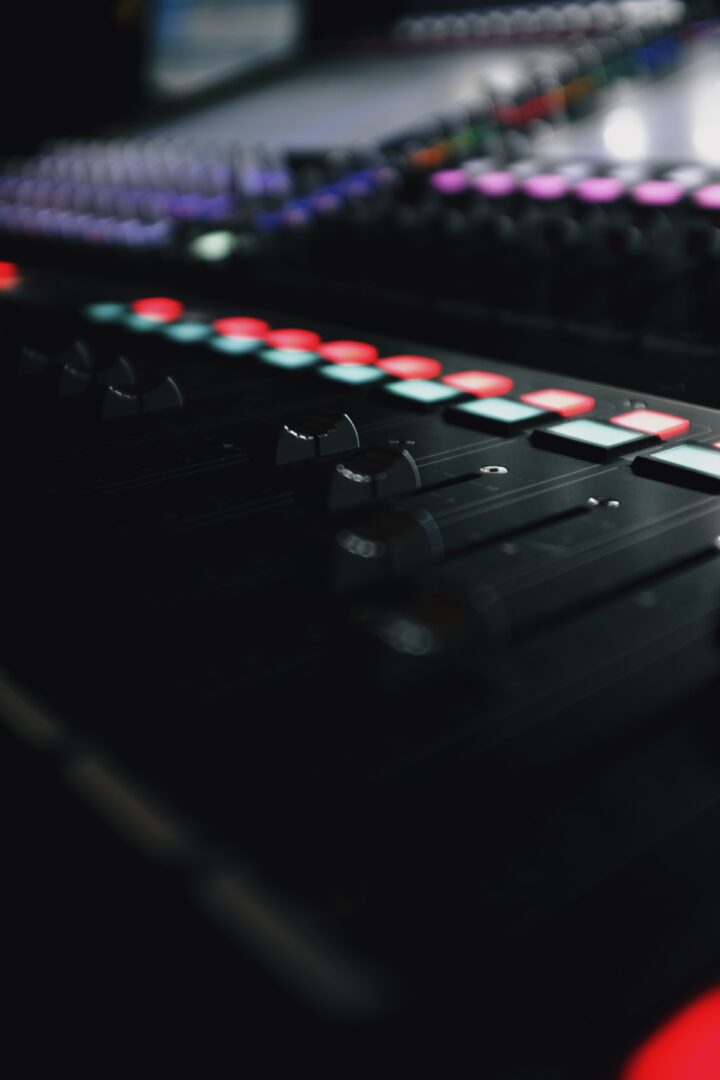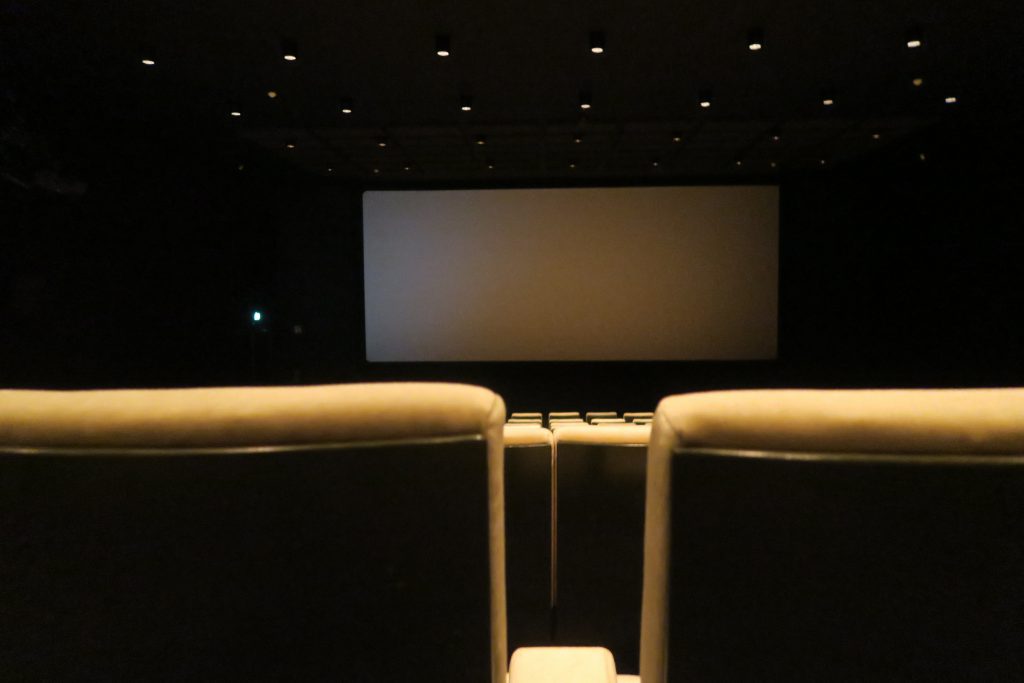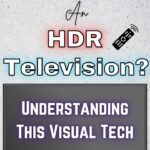DTS VS Dolby Digital 5.1
DTS VS Dolby Digital 5.1

Another day, another showdown; this time it’s DTS VS Dolby Digital 5.1.
It’s likely you’ve heard of these 2 formats considering they’re in pretty much everything these days, but there was a time when this wasn’t the case. Mono sound was the one that originally dominated the scene.
However once they were introduced, they revolutionized the industry forever.
Dolby came first, and can be credited with the popularization of surround sound; with the latter coming later as a variation of it.
So naturally, one might then wonder which one of the two is the better format?
Let’s find out
History Of The Dolby Format
Believe it or not, the Dolby format itself has been around for nearly 50 years now. It began in 1965 as a small company in London, and was founded by a man named Ray Milton Dolby.
Now Ray was an interesting man to say the least.
Not only was he an electrical engineer and physicist at a young age, but he was also a technical advisor of the United Nations in India. He’s even credited with helping invent the Video tape recorder.
This all before he even began the Dolby Company that obviously took off (talk about talented) But his inspiration stemmed from an innate all around passion for music and filmmaking.
But realizing that there was still much progress to be done, he would then go on to create what was known a noise reduction.
In most recordings prior, besides the original audio, there was often background noise and static that tended to muddy the sound. But since this was the standard, everyone pretty much accepted it as normal.
With his noise reduction technology, this cleaned up the sound dramatically; resulting in an unparalleled level of clarity never seen before.
As you could probably imagine, this was a pretty big deal.
Musicians and filmmakers alike praised him for this revelatory invention. http://www.independent.co.uk/news/obituaries/ray-dolby-obituary-inventor-whose-noise-reduction-technology-transformed-sound-reproduction-8815543.html
But being the kind of person that he was, this was barely the start as he would then go on to patent Dolby with the eventual release of the first film incorporating that new technology which was A Clockwork Orange.
From there it would become standard in content moving forward; in music and movies alike.
The Start Of Dolby Stereo Sound
Later on This was markedly richer and clearer than mono sound, and they knew they immediately knew they had the next big thing on their hands.
In 1976 A Star Was Born was the first movie using this technology
On May 25, 1977 one of the biggest blockbusters of all time also came out touting the new technology. Any guesses to what that movie was?
Star Wars!
Star Wars along with Close Encounters Of The Third Kind were some of the early movies to be released in Dolby Stereo that really elevated things. People were blown away by the experience.
This was the point where movie theaters, and even sound itself, was changed forever.
The Beginning of Surround Sound
But here’s the interesting part that many might not be aware of. The idea of surround sound isn’t new. It’s actually been around since about the 1940’s.
Walt Disney originally had plans to make the movie Fantasia able to be heard all around the audience. The complete vision never came to fruition due to costs however, and was scrapped. http://www.informit.com/articles/article.aspx?p=337317
Even though it wasn’t commercialized until years later, right around the time Dolby was working on stereo, they were also already working on its successor — 5.1 surround sound!
By 1975, a rudimentary form of it was in development; dubbed quintaphonic sound.
The idea of course, was to be able provide a sense of realism where the sound would envelop the listener. The first film to actually use this experimental tech was Tommy.
Then In 1976, they made headway by managing to modify traditional film strips to use their format.
Finally, 1979 was the first year where separate surround speakers made their debut in the movie Apocalypse Now.
It was just upwards from there, with improvement upon improvement rolled out.
1983 saw the first release of commercial in home surround sound, and in 1986, he released an improved version of his noise reduction invention called Dolby SR (which is still revered to be the best even to this day)
The Arrival Of Dolby Digital 5.1
With the world quickly advancing in other areas of technology, they realized they needed something new to rejuvenate public interest. So by using compression technology to fit more information into a smaller space, they once again created something noteworthy.
In 1992, the groundbreaking Dolby Digital was first introduced, complete in full 5.1 surround sound (also called AC-3 for audio coding 3)
Once again filmmakers were flabbergasted, and everyone wanted in.
That summer, Batman Returns held the honor of being the first movie to officially use it (not to mention it was a good movie in general) By 1998, it was already being used in live HDTV broadcasts.
History Of DTS
But as luck would have it, not everyone was on the Dolby bandwagon.There were other engineers out there that had additional ideas, and so decided to realize them.
In 1990, a man by the name of Terry Beard decided that he would create his own company, which was called Digital Theater Systems Inc at the time (today it’s called Dedicated To Sound, DTS for short)
Terry felt that he had a genuinely unique spin on the idea of surround sound, and so pitched his new tech to none other than Steven Spielberg.
He managed to redo Spielberg’s movie, Encounters Of A Third Kind, entirely in DTS.
By managing to impress one of the most influential filmmakers at the time, he figured he’d be able to prove that his offering had real value in the industry.
Well it obviously worked, because not only did Spielberg completely endorse his idea, it was the featured standard of his next movie.
In 1993, Jurassic Park was released, fully mastered in the offering from Digital Theater Systems.
Shortly after, Universal Studios, and various other companies invested in what they thought was the future. https://www.soundandvision.com/hookmeup/406hook
Which One Of The Two Is Better?

So two digital formatting titans, with two drastically different approaches to surround.
The question then becomes which is better?
Well the answer to that is a little complicated. On paper, DTS technically has the advantage since it’s able to stream data at a higher amount.
With less compression than Dolby, combined with a higher bitrate (the amount of information it can stream at any given time) it only makes sense.
However Dolby raises a valid counterpoint by stating that because their format is more efficient, it doesn’t need to run at a higher bitrate to get the same quality of sound.
Both of these points are debatable due the fact that there’s currently multiple versions of each.
It doesn’t help either, that both companies seem to constantly update their codecs as well. What makes it even more difficult is the fact that everyone perceives sound differently.
To further complicate things, movies are typically only mixed with one format or the other so it’s almost impossible for a direct head to head comparison.
So for me to objectively say that one is irrefutably better than the other is also impossible.
What is possible and what I can speak on is what I’ve personally noticed.
Now I’ll just be covering the audio difference I experienced, but if you’re curious about more of the technical, nitty gritty differences between the two, then this is a fantastic article to read. http://www.practical-home-theater-guide.com/dolby-vs-dts.html
So to really get to the bottom of it, I decided to go on a mini movie binge. I watched Avengers Age Of Ultron, Guardians Of The Galaxy 2, Spiderman Homecoming, and a quite a few others (I love superhero movies) By the end, this is what I realized.
Comparing both Dolby Digital & DTS, both seemed to have a similar dynamic range all around at least in my opinion.
Whether it be explosions, dialogue, etc., it always seemed as though it that they were really similar comparatively.
Even in the surround speakers, I didn’t happen to notice any large differences. Ambient noises like rainfall and chirping birds seemed to be well represented in both formats.
Listening to music was the same for me, and there wasn’t anything that particularly stuck out in terms of immediate differences.
So to answer the original question about which one is better, in general I didn’t really notice any major differences and felt they both sounded really great.
But again this is over the course of viewing many different movies that are all mixed differently, and considering that we as the end user don’t really have a choice on which movie uses, this could have a big impact on things as well.
The same goes for different songs too.
Maybe it’s possible in closer listening with music and higher end studio monitors there could be some kind of difference, but I didn’t personally notice it.
Final Thoughts
Hopefully this helps when it comes to DTS VS Dolby Digital 5.1, as far as the better format is concerned.
However, even though these two are the de-facto standard for now, this could always change with new innovations from them as well.
With the advent of Dolby Atmos and DTS X, the competition between the two industry leaders once again rages on.
In any case, due to their continued desire for constant innovation, we’re the ones that win in the end.
About Me

Jay
Hey everyone it’s nice to meet you. I'm Jay, writer & founder of the site Easy Home Theater. I've been with this hobby of home entertainment for many years now. I decided to create this site to be a helpful resource, and share everything that I've learned from personal experience with you. I also happen to be a huge gamer, lover of all things tech related, and a major fitness buff (love weightlifting)
Contact: Contact Jay
Facebook: https://www.facebook.com/Easyhometheater/
X: https://x.com/easyhometheater
Pinterest: https://www.pinterest.com/easyhometheater/pins/
Instagram: https://www.instagram.com/easyhometheater/
Followit: https://follow.it/easy-home-theater
Bluesky: https://bsky.app/profile/easyhometheater.bsky.social
16 Comments so far:
-
-
Wow that sucks. It could have been any number of things so it’s really hard for me to say. Honestly, I prefer free standing ones. When you wall mount it, the cabinet sits up against the wall and that additional resonance can change the sound; sometimes for the better, and sometimes for the worse. That’s why I just personally forgo that all together.
-
-
What a great read, from this I have to say I am more in favor of DTS cos I really like those spikes in volume that make you jump and it sounds more like an immersive experience compared to Dolby. 😉
-
Yeah I agree! It’s a lot funner that way!
-
-
WOW! What a great article and a very interesting history lesson too! I learn something new everytime I visit your site.
Personally, I have always been a fan of Dolby Digital however after reading your article I think I need to experience DTS.
I will come back to your site after I have had a chance to experience DTS and give you my verdict! 🙂
Keep up the good work!
-
Yeah it’s a really cool format, but if anything you truly need to expreince Atmos. That one is insane.
-
-
Hi there!
Great article, I didn’t have much knowledge on either of the systems before reading this!
Do you have any recommendations for a good surround sound system? Something that would fit in a smaller living room?Thanks for sharing and keep up the good work!
-
That’s so broad lol. Do you prefer a premade one, or one that you make yourself? If you let me know I can help from there.
-
-
Hi. Great article.
I didn’t know that Dolby format is around about 50 years.
You have explained everything well, I really like your website. keep up the good work. Cheers. Damien-
Yep it’s been a while. And thanks Damien!
-
-
Great post! Very informative, I didn’t realise the importance of what I used to think was splitting hairs! I’ve studied film at A-Level, and whileI had an understanding of how important it was for modern cinema, I didn’t realise it was also revolutionary in sound! Very interesting!
-
Haha that’s awesome, must have been quite the challenge though.
-
-
Wow! So much awesome info. I love knowing the timeline of things and had no idea about most of this. Thanks for all the insights!
-
No problem! There’s definitely a rich history behind it all.
-
-
I honestly prefer Dolby Digital for nighttime watching since I don’t have to turn it up as loud to hear the dialogue. In the case of the DTS, I guessed it would be preferred by most people because it truly offers an overall funner experience. Thanks for sharing such an informative post!
-
Yeah that’s what I noticed too. Glad I’m not the only one.
-







Hi Jay. Thank you for this informative article. I bought a home cinema system a few years ago but we actually gave up with it after a while because we couldn’t adjust the surround sound system so that the dialogue was clear and we heard more sound effects than anything else. I suspect that was more to do with the way we set it up than anything else although the systems you talk about sound better. I’d love to have another go at some point so I’ll know where to come for more information.
Do you think that it is better to have free-standing or wall-mounted speakers, or does it not make any difference?